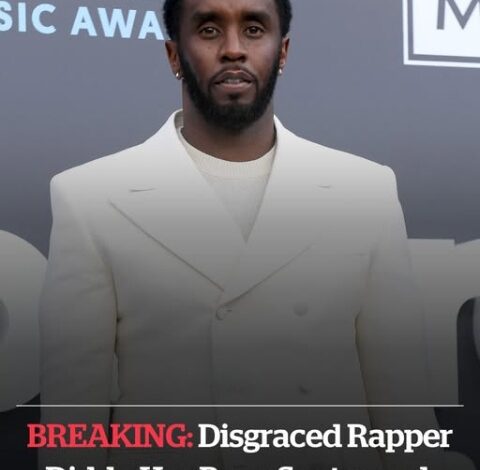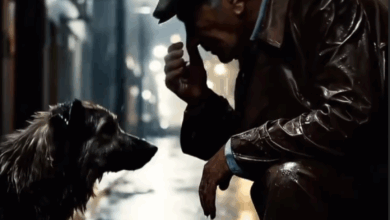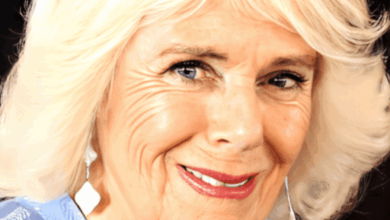
Disgraced rapper Diddy has been sentenced!
For decades, Sean “Diddy” Combs stood as one of the most influential figures in hip-hop and pop culture. He was a mogul who built empires in music, fashion, and spirits, shaping an image of unstoppable success.
But on October 3, 2025, the man once synonymous with wealth, power, and swagger sat in a courtroom, stripped of his larger-than-life persona, waiting for his fate. By the time the judge delivered his sentence, Diddy was no longer the untouchable mogul—he was a convicted felon facing years behind bars.
The charges had been building for months, bringing whispers in the industry into the harsh light of the courtroom. At the heart of the case was prostitution—transporting individuals across state lines for commercial sex acts. While Diddy was acquitted of the more explosive allegations of sex trafficking and racketeering, the conviction still marked a devastating fall from grace.
Judge Arun Subramanian, presiding over the case, made it clear that leniency was off the table. “The crimes here may not have risen to the level of trafficking,” he said, “but they represent an abuse of power, wealth, and influence that cannot be ignored.” With that, he handed down a sentence of 50 months in prison—just over four years—along with a $500,000 fine.
The courtroom was tense as the sentence was read. Members of the press scribbled notes, family members of victims wiped away tears, and Diddy himself, dressed in a gray suit, lowered his head. Once celebrated as a master of reinvention, he now faced years of confinement and the challenge of rebuilding a reputation that seemed beyond repair.
In his statement to the court, Diddy did not deny his guilt. Instead, he leaned heavily into remorse. “My actions were disgusting, shameful, and sick,” he said, voice breaking as he addressed the judge, the victims, and his family. He specifically mentioned his former girlfriend Cassie Ventura, who had come forward years earlier with disturbing allegations of abuse, and another woman known only as “Jane.” Both had testified in the proceedings, their voices shaking but resolute.
“I have been humbled and broken to my core,” Diddy continued. “I grew up with trauma, I turned to addiction to escape it, and I let my demons consume me. But none of that excuses what I did. I hurt people. I disrespected women I claimed to love. And for that, I am deeply sorry.”
His apology brought some in the gallery to tears, though others looked on with skepticism, wondering if the words were an act of desperation rather than true contrition. The prosecution certainly wasn’t swayed.
Assistant U.S. Attorney Michelle Reyes pushed back hard against the defense’s portrayal of Diddy as a broken man who lost his way. “Sean Combs is not a victim,” she argued during closing statements. “He is a man who used his money, fame, and influence to exploit vulnerable women. He made choices—calculated, deliberate choices—that caused harm. He does not deserve pity. He deserves accountability.”
The defense countered with a portrait of Diddy’s early life: a boy from Harlem whose father was murdered when he was a child, a young man who clawed his way to the top of an unforgiving industry. They described the crushing pressure of fame, his long battle with substance abuse, and the emotional wounds he never healed. “This is a man who has stumbled,” his attorney said, “but he is also a man who has given back, who has uplifted artists, who has donated millions to communities in need. Prison will not heal him—it will only destroy what remains of him.”
But Judge Subramanian was unmoved. He acknowledged Diddy’s difficult upbringing and his philanthropic efforts but ultimately concluded that those factors could not outweigh the gravity of his crimes. “The court cannot look the other way simply because of your celebrity,” he said. “You wielded influence not to protect or elevate, but to exploit. That demands consequences.”
The sentence marked a sharp end to an era. Diddy, who once declared “Can’t stop, won’t stop,” now faced four years in federal prison. Beyond the time behind bars, the repercussions stretched further. His businesses had already begun to unravel, with sponsors pulling out, artists distancing themselves, and his music catalog under review by distributors. The man who built Bad Boy Records into a cultural juggernaut was now, ironically, the one on the defensive.
For Cassie Ventura and “Jane,” the sentence was a moment of vindication, though hardly a complete healing. Both women had faced intense public scrutiny, especially Cassie, whose civil lawsuit years earlier had first cracked open the wall of silence around Diddy. On social media, fans and fellow artists praised their courage, acknowledging that their voices had forced accountability where silence had once prevailed.
The hip-hop community itself was divided. Some expressed sorrow, remembering the opportunities Diddy had created for Black artists, entrepreneurs, and communities. Others were blunt: “This is the cost of abusing power,” one prominent artist wrote on Instagram. “No one is above the law.”
In the days following the sentencing, analysts debated what this case meant for the entertainment industry. Was it a turning point in holding powerful figures accountable, or just another fleeting scandal? Critics pointed out that while Diddy had been convicted of prostitution-related charges, the acquittal on sex trafficking meant that some of the most serious allegations went unpunished. Supporters of the victims argued that the sentence, while not the maximum possible, was a crucial step forward.
For Diddy, the road ahead is uncertain. His legal team has already signaled plans to appeal aspects of the conviction, though success seems unlikely given the evidence presented. What is clear is that his empire—once spanning music, fashion, television, and liquor—has fractured. His reputation, once carefully cultivated through glossy ads and chart-topping hits, now carries the stain of criminal conviction.
Yet in his final words to the court, Diddy tried to project hope. “I will use this time to become a better man. I will never again harm another person. My focus will be on healing, on rebuilding my relationship with my children, and on giving back in whatever way I can.”
Whether those words reflect genuine transformation or a desperate attempt to salvage what remains of his legacy is something only time will reveal. For now, Sean “Diddy” Combs is no longer the mogul on magazine covers or the flashy host of music awards. He is inmate-to-be, facing four years in prison and the long shadow of choices that dismantled everything he built.
In the end, the story of Diddy’s sentencing is not just about a man brought down by his crimes—it is a cautionary tale of power, privilege, and accountability. The hip-hop mogul who once shaped culture now finds himself reshaped by justice.




